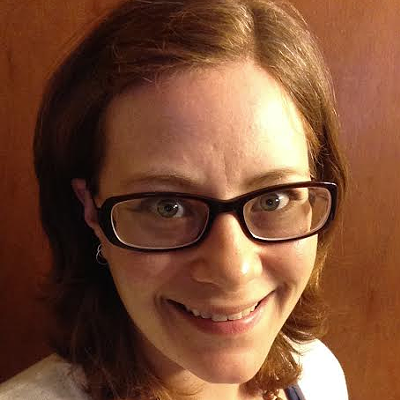We recently caught up with him to ask why he doesn't think we should worry, what might happen on December 21 and more:
Westword: How did you first become interested in the Mayan culture?
Ed Barnhart: In some regards, it began as a kid. I really was enamored with the idea of exploring places that had been lost forever, so when I went to college, I had the idea of going to South America. I was fascinated to think that Macchu Picchu had been found, and the Andes are such forboding places that there must be more there. I walked into college with a desire to explore and find new places. I found at the time that very few people were doing research in South America, and at CU-Boulder, I found a professor discussing the Maya. His name was Payson Sheets, he's a great archaeologist, and he introduced me to the world of the Maya. In my very first class with him, he told the class there was going to be a school in Honduras, there were only a few openings, so I fired off my last hundred dollars as a college freshman, and I made it in. I went to Honduras for a month where I met who was to become my mentor and teacher, Linda Schele. Those two excellent teachers gave me the buzz. So that was the beginning of my Mayan experience.
What will you have to say in this talk?
I was interested in the Maya calendar and mathematics and astronomy long before any of this business about 2012 came up. My father's a scientist, so I always leaned toward the more scientific aspects when I was studying the Maya. Then all this business about the end of the calendar comes up. I do not believe that this is the end of the calendar, and I do not see any prophecy. My talk is entitled "Why you shouldn't worry," and here's why: Number one, there are no prophecies, so that's one of the things I want to explain there. And number two, I think we are making a mathematical error, an assumption from a Western point of view, about the calendar. I don't believe it ends or resets in 2012. I believe that we have been misled, that there are no prophecies pointing to 2012 or any other date. I am going to talk a little bit about pseudoscience ideas, people's worries about polar flares and magnetic pole shifts, I'm going to address some of that.
Why do you think people have latched onto this date the way they have?
It's human nature, I believe, to be fascinated with the idea that there's some sort of end in the future, and that people, either ancient or modern, can predict how and when it's going to happen. We just went through Y2K, that was such a big thing, and we passed it and looked, as humans, toward something new. There have been talks about Nostradumus and how his writings are supposed to link up toward this supposed dates of the Maya. When this goes, we'll pick something else. One of the things I'll go through in my talk is that through the past five thousand years in human history, every generation has someone saying the world is going to end, and now it's the Mayas turn.
So what - if anything - do you think will happen on December 21?
With all of these people thinking these various things, I am a proponent of self-fulfilling prophecies. I think there's going to be a lot of people expecting something. But I think the day will pass like any other day. I think there'll be lots of people in the Maya ruins. I fear there may even be some cults who try to bring themselves to an end. I hope there's not a Jonestown sort of thing among any folks, I hope that doesn't happen to people. But I think as far as the world and people, it'll be a day like any other day. Now I do believe that the Maya would see this date coming up, December 21, 2012, as an important junction in their calendar. Kind of a grand anniversary, even. It's the completion of thirteen baktuns, which are four-hundred-year periods. The reason we get this date to begin with is their creation story tells us that the third creation ended when thirteen baktuns were complete, and now we're in the fourth creation, and we're coming up on thirteen baktuns again. That's why people are assuming everything will start again. And I believe the Maya had an idea -- instead of prophecies, what they had is kind of a cyclical view of time and the cosmos, and there were certain times where cycles came around, and it was kind of your obligation, or at least a good idea, to change the way you live. And I think this is one of those times. So the Maya themselves would be expecting a time of what some people call transformation and renewal. But it's something we do, not something that happens to us.
And what about people who think the date signifies a shift in consciousness instead of the end of the world?
That is looked at through a Western lens. The folks that are saying there's going to be a big shift in consciousness are implying that it's just going to happen to us, that we can stand around passively and receive this gift of transformation. That's not at all what the Maya would be saying about that. It's an opportunity for us to enact change. There's a sort of entitlement mentality that goes along with the idea of a consciousness shift. That's not what the Maya would say, they'd say it's a good time to go out there and be the change. Nobody gets something for nothing, right?











